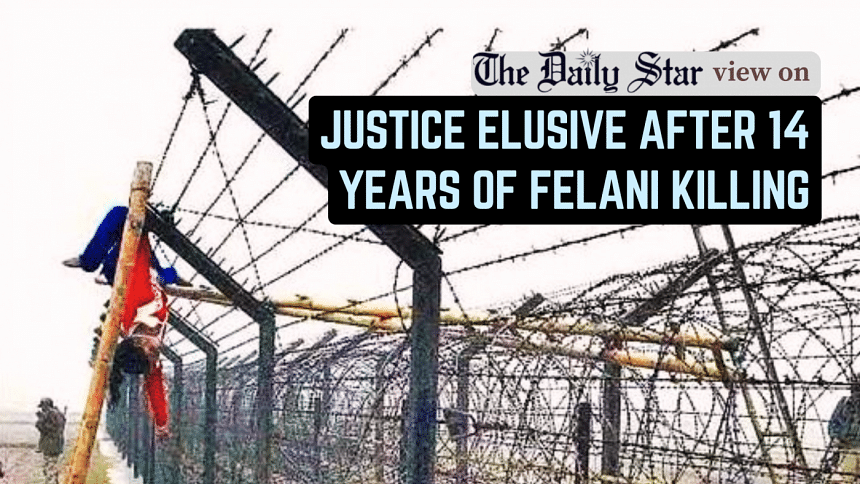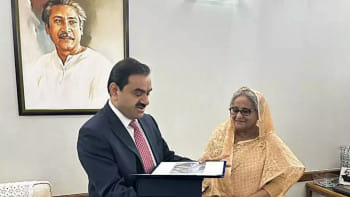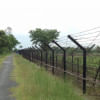Impunity for border killings must end

It is unacceptable that even after the passing of 14 years following the gruesome murder of Felani Khatun, justice still remains elusive. This simultaneously reflects Bangladesh authorities' lack of initiative in pursuing justice as well as the Indian authorities' refusal to ensure accountability, both of which have contributed to a culture of impunity enabling such border killings to persist.
On January 7, 2011, 15-year-old Felani was shot dead by a member of the Indian Border Security Force (BSF) while attempting to cross the barbed-wire fence near Kurigram and West Bengal's Koch Bihar. As she climbed down a makeshift ladder, her dress became entangled in the fence. While stuck, she was spotted by BSF personnel, and constable Amiya Ghosh shot her. According to Kirity Roy, secretary of a West Bengal-based rights organisation, the BSF could have apprehended Felani without using lethal force and presented her in court for breaking the law. Instead, she was shot and left hanging on the fence for hours, bleeding to death. Even after shooting her, the BSF could have rescued her and provided medical attention, but they chose not to.
The death toll at the India-Bangladesh border starkly contrasts with the far fewer fatalities along the India-Pakistan border, despite the latter's hostile relationship. When a so-called "friendly" neighbour causes such loss of life, how can this relationship be viewed as genuine friendship?
Despite this inhumane act, a BSF court acquitted Amiya Ghosh of any wrongdoing, with a subsequent BSF court also upholding the verdict. Meanwhile, the Supreme Court of India, set to hear final arguments in this case on January 8, postponed the hearing for unspecified reasons. Will Felani's family ever get justice? After 14 years, Indian authorities seem to have little interest in this regard. This impunity—and the evident disregard for Bangladeshi lives—has allowed such killings to continue unabated. The most recent casualty is Zahur Ali who, earlier this week, was allegedly beaten to death by BSF members and Indian citizens along the border.
According to Ain o Salish Kendra (ASK), 31 Bangladeshis were killed by BSF in 2023, 23 in 2022, and 18 in 2021. Thus, at least 522 deaths of Bangladeshis were recorded between 2009 and 2020. One cannot help but ask: why is the number of casualties so high despite India's repeated promises to reduce them to zero? How should Bangladesh respond to such killings and to India's claim of being a "close friend"? The death toll at the India-Bangladesh border starkly contrasts with the far fewer fatalities along the India-Pakistan border, despite the latter's hostile relationship. When a so-called "friendly" neighbour causes such loss of life, how can this relationship be viewed as genuine friendship?
The interim government must prioritise justice for all Bangladeshi victims of BSF violence, starting with Felani Khatun. It must also demand an immediate end to these killings. If Indian authorities remain uncooperative, Bangladesh should consider taking the issue to international courts and actively raising it on global platforms, as the Jatiya Nagorik Committee recently suggested. It is time for Bangladesh to adopt a firm stance against the BSF's callous treatment of our citizens and India's persistent failure to address this grave issue. Impunity must end, and justice must prevail.


 For all latest news, follow The Daily Star's Google News channel.
For all latest news, follow The Daily Star's Google News channel. 










Comments